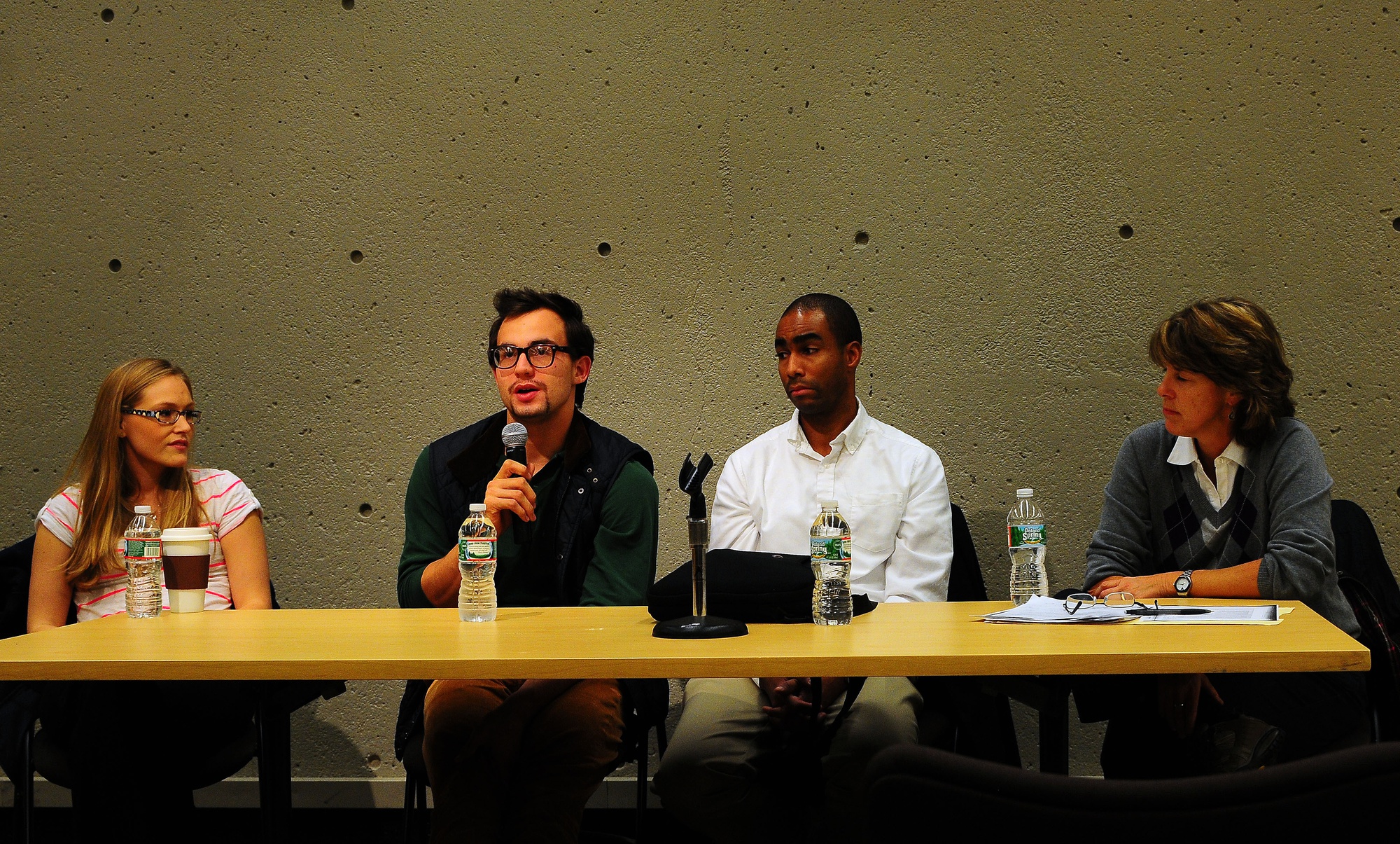
News
Harvard Grad Union Agrees To Bargain Without Ground Rules

News
Harvard Chabad Petitions to Change City Zoning Laws

News
Kestenbaum Files Opposition to Harvard’s Request for Documents

News
Harvard Agrees to a 1-Year $6 Million PILOT Agreement With the City of Cambridge

News
HUA Election Will Feature No Referenda or Survey Questions
Panelists Examine Depression, Disabilities

Though it is possible to recognize and accommodate some physical disabilities, according to a college-wide panel that met Wednesday night at Gutman Library, there is still much work to be done in understanding and treating mental disabilities.
At the event, sponsored by the Harvard College Disability Alliance, International Higher Education and Disability, and Student Mental Health Liaisons, student and professor panelists alike discussed depression as a disability, the stigma that surrounds it, and how students can move forward when suffering from depression.
According to Lawrence I. Reed, a Harvard College Research Fellow in Psychology, a large part of the problem in attempting to understand depression is the disease’s extreme complexity. Even though scientists have made great strides in researching depression, it “still remains very esoteric and misunderstood by many individuals,” Reed said.
Christine E. Looser, a postdoctoral fellow at Harvard Business School, further explained the elusiveness of depression.
“We can’t see anyone’s mind, so we have to sort of make it up,” Looser said.
Despite the inability to fully understand what happens in each other’s minds, Reed emphasized the observable impacts that depression can have.
“Depression...is almost the worst possible thing you can have for many college students,” Reed said. “There is decreased motivation, decreased concentration, sleep disturbances, and eating disturbances.”
All of the panelists noted that it is important for the public to be careful not to make assumptions about the mental conditions of those who may be depressed.
“Depression from the outside might look like laziness or lack of motivation, or anything other than what depression really is,” Reed said.
The panelists also addressed the options available specifically for students suffering from depression.
“It is up to you to inform people of your circumstances,” said panelist Sam R. Peinado ’15, a student mental health liaison for the College. “It is o.k. to ask for slack and it is often granted, but you have to be open and honest.”
For those with friends dealing with depression, Looser offered that “asking your friend how he is doing and actually meaning it” is a simple and intuitive way to offer assistance. In addition, Looser said that the best way for individuals to open up and be able to talk about problems they may be facing is to encourage “authentic conversation about how people are actually feeling.”
Over the past year, the students and administrators have made concentrated efforts to address mental health on campus. These efforts included a video campaign sponsored by the Student Mental Health Liasons called “Harvard Speaks Up,” at least one student rally, and open conversations between students and administrators about mental health.
Want to keep up with breaking news? Subscribe to our email newsletter.
From Our Advertisers

Over 300+ courses at prestigious colleges and universities in the US and UK are at your disposal.

With innovative financial tools combined with financial education, Collegiate empowers students to take control of their finances and build confidence in their money management skills.

Serve as a proctor for Harvard Summer School (HSS) students, either in the Secondary School Program (SSP), General Program (GP), or Pre-College Program.

With an increasingly competitive Law School admissions process, it's important to understand what makes an applicant stand out.

Welcome to your one-stop gifting destination for men and women—it's like your neighborhood holiday shop, but way cooler.

HUSL seeks to create and empower a community of students who are seeking pathways into the Sports Business Industry.
